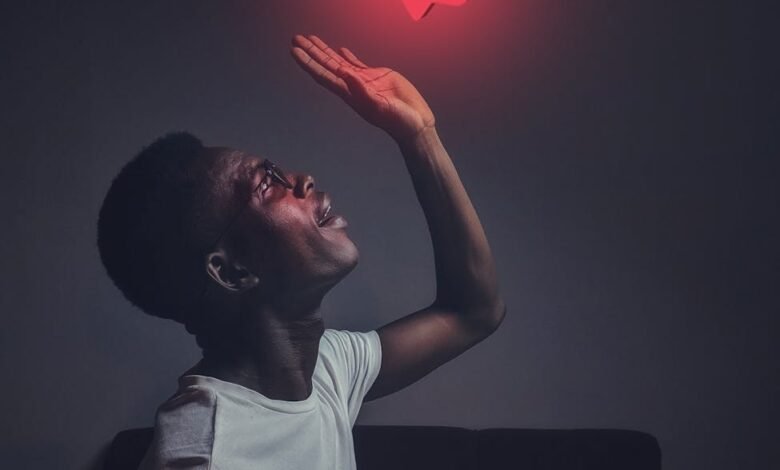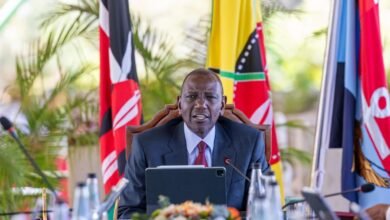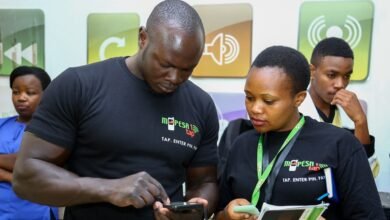
Nyaribari Chache MP Zaheer Jhanda recently announced plans to sponsor a bill that would fundamentally change how social media works in Kenya. Drawing “inspiration” from China’s new law, Jhanda wants influencers to hold university degrees before they can discuss professional topics like law, finance, or health.
His argument: “We cannot have a country where everyone is an expert.” He insists creators must be recognized by professional bodies like the Law Society of Kenya (LSK) or the Medical Council before speaking on specialized subjects.
It’s an idea sold in the wrapper of public safety. We’ve all seen the crypto scams and the TikTok “doctors.” But scratch beneath that thin veil, and Jhanda’s proposal reveals itself as a deeply flawed, unworkable, and hypocritical idea that could do more damage to Kenya’s fragile digital rights than any wellness scammer.
This Isn’t About Expertise. It’s About Control.
First, let’s be clear about the “China model” Jhanda wants to copy. Yes, as of October 25, 2025, China’s Cyberspace Administration (CAC) began enforcing rules requiring influencers to have degrees or licenses to discuss sensitive topics. Platforms like Douyin and Weibo are now state-mandated bouncers, verifying credentials and fining non-compliance.
But what Jhanda conveniently leaves out is the context. China’s law isn’t just about stopping bad health advice. It’s an authoritarian tool. What people are missing out on is that the same Chinese regulation lists 31 prohibited activities, including any content that “weakens or distorts” the leadership of the Communist Party. {Remember the ban is during live streaming}
When a Kenyan MP says he’s “borrowing a leaf” from this model, we have to ask which part he’s borrowing: the credential-checking or the control? And why so quickly after a viral video would he say he’s sponsoring a similar bill? Did he fact check what China is doing? Is this an original thought?
Who Regulates the Regulators?
This brings us to what I think is just pure hypocrisy. Before Parliament discusses the qualifications of a YouTuber or TikToker or Instagramer, they should look in the mirror.
Kenya is a democracy where populism, not just technocratic expertise, gets people elected. This proposal is a masterclass in double standards. In 2022, the High Court actually declared the Elections Act’s requirement for MPs to hold university degrees unconstitutional, citing a lack of public participation.
Let that sink in. The very lawmakers who fought to remove their own degree requirement now want to impose one on private citizens.
If the people making the laws don’t need to be qualified lawyers, why should someone discussing legal issues on a podcast? If the members of the national budget committee don’t all need economics degrees, why should a Financial TikToker? This isn’t a serious attempt to elevate public discourse; it’s an attempt to pull up a ladder they themselves refused to climb.
The Abductions Elephant in the Room
If Kenya were a healthy democracy, this bill would be like a bad policy we argue over and let go. However, we are not. And this bill feels more like a loaded gun.
Article 33 of the Constitution guarantees freedom of expression. This proposal isn’t a reasonable limitation; it’s prior restraint. It transforms a fundamental right into a privilege granted only to those who can afford a degree.
But it’s worse than that. This bill would hand a new, vague, and powerful weapon to a state already demonstrating a terrifying comfort with repression.
According to the Missing Voices coalition, enforced disappearances in Kenya increased by a staggering 450% from 2023 to 2024. The Kenya National Commission on Human Rights (KNCHR) and Human Rights Watch (HRW) have documented dozens of cases of abductions, torture, and even killings of social media activists and protesters critical of the government.
In this climate, a law that lets the state decide who is “qualified” to speak isn’t about public safety. It’s a censorship tool waiting to be weaponized.
Also, who decides what counts as “professional advice”? If we take to the interwebs to discuss our Airports being sold, or to discuss better pay for doctors or even just discuss ways to end police brutality, will we require relevant degrees for each of these topics? Will citizen journalists exposing corruption need a “governance” certificate?
A Bureaucratic Nightmare Waiting to Happen
Even if we ignore the chilling effect on free speech, the plan is simply unworkable.
- How will it be done? Must it be a Bachelor’s degree or a diploma? A Master’s?
- Who verifies? The Commission for University Education (CUE) already struggles to vet fake degrees within the government. Are we now outsourcing this to TikTok and Instagram?
- What about informal knowledge? Kenya’s economy runs on the jua kali sector. Would a successful entrepreneur who dropped out of university be barred from sharing business advice? Would a mechanic with 20 years of experience be silenced for reviewing a new car model?
The Cruelest Joke: Demanding Credentials You Won’t Provide
This is the most fundamental, insulting flaw in Jhanda’s proposal. A government cannot demand university degrees as a prerequisite for public speech while simultaneously destroying its university system.
The timing is a cruel joke. As this bill is being discussed:
- The Higher Education Loans Board (HELB) is facing a KES 49.8 billion funding shortfall, leaving over 100,000 university students without financial support. HELB itself has warned of “massive student dropouts” and “systemic failure.”
- University lecturers have been on strike for close to six weeks to protest the government’s failure to pay KES 7.9 billion in salary arrears from the 2017-2021 CBA.
- Learning is paralyzed. Students are at home. The government, instead of funding education, is interdicting lecturers at institutions like the Technical University of Kenya (TUK) for striking.
Jhanda’s proposal tells an entire generation of young Kenyans: “You can’t discuss important topics online because you couldn’t afford the education the government failed to fund.” It is the peak of political cynicism. It’s not a serious proposal. It’s a distraction and to many young people, a threat.
If MPs want to stop misinformation, they should start by funding HELB, doing away with bursaries, ensuring proper education quality. Pay the lecturers. Uphold the Constitution. End the abductions.
A democracy doesn’t police what people say based on their credentials. It empowers all citizens to speak, to question, and to learn – even when they’re wrong.






